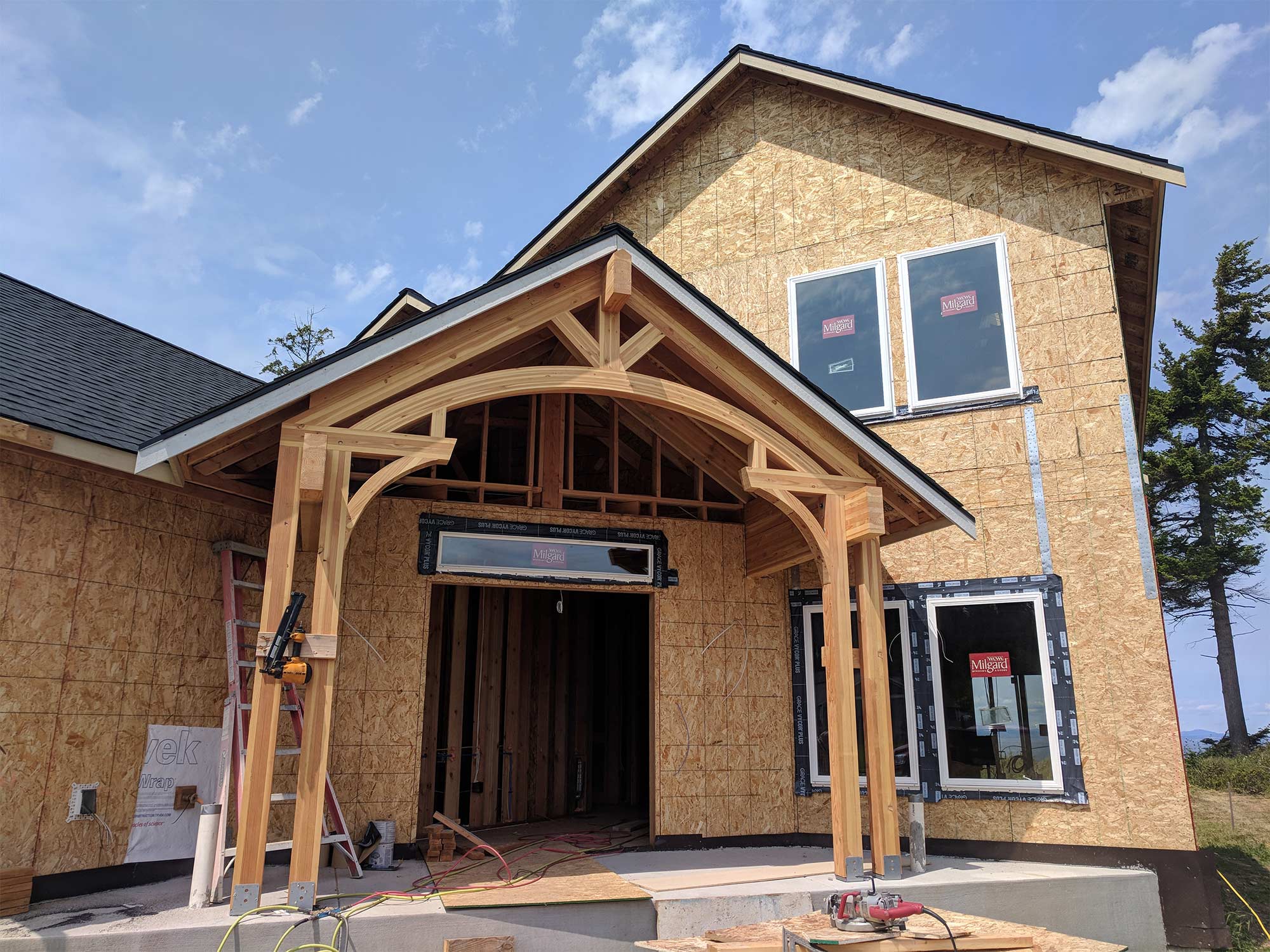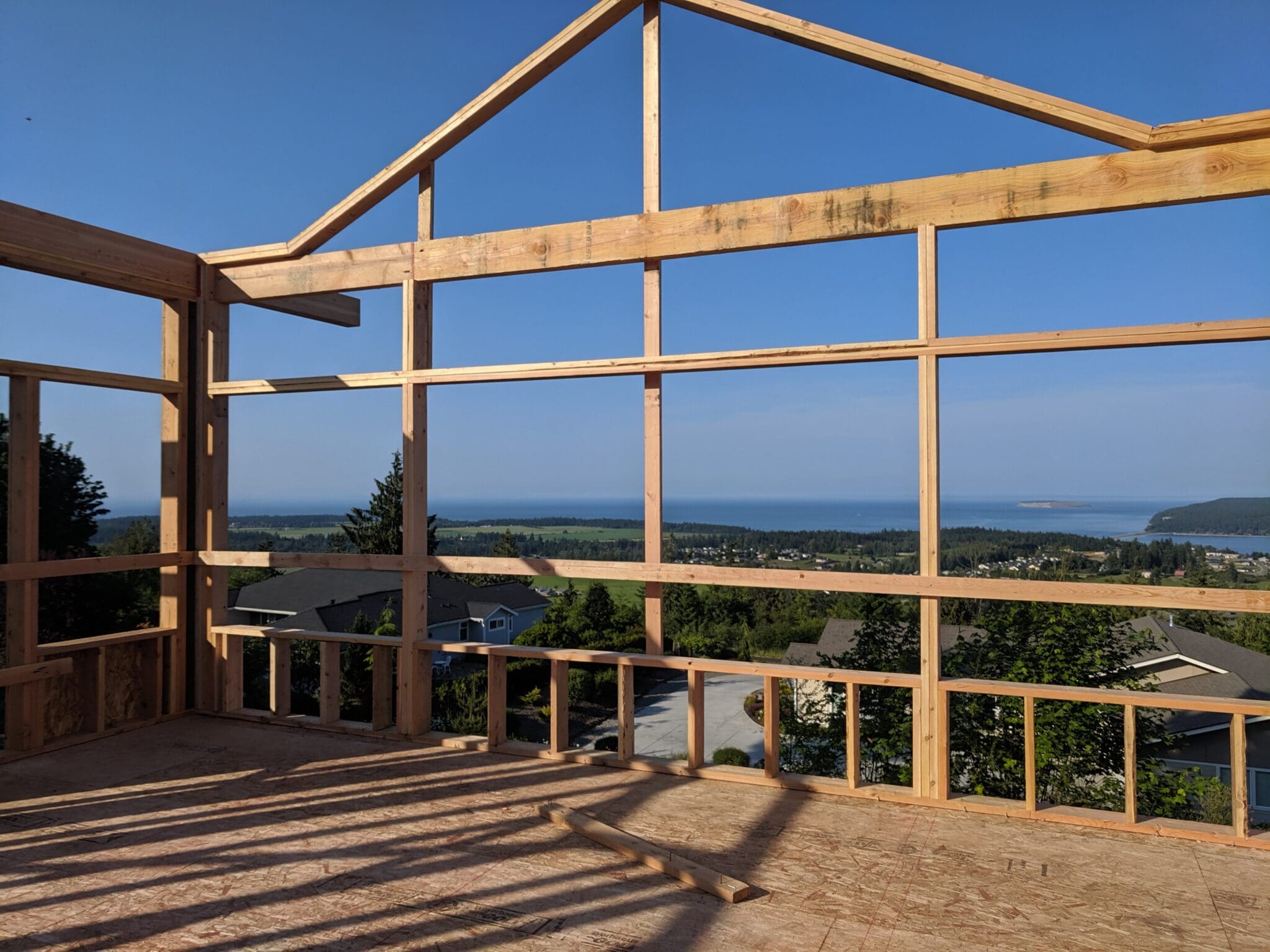Building the home of your dreams is a bit different than buying a production home, with a few extra hoops to jump through and some nuances that come with anything-goes opportunities. If you’re brimming with questions, you’re not alone.
Here are a few of the most common queries we get asked regularly. Have more? Ask us here.
Why should I choose a custom home?
What is the difference between a spec home and a custom home?
How long does it take to build a custom home?
What time of year should I build a house?
How much does a custom home cost?
Do custom homes appraise lower than they should?
Should I build an ADU to live in while my house is being built?

Why should I choose a custom home?
Simply put: A custom home build ensures you’re getting exactly what you want and the best quality-design-cost value for your land. If you have specific, must-have design features, floor plans, and styles in mind – you won’t find what you’re looking for in a master-planned community.
Or perhaps you’ve considered remodeling your existing home but are finding the costs or unknowns prohibitive to reaching your end goals. A new custom home might be a better fit versus living through a gut-rehab that still has more questions than answers and may not achieve all of your wishes.
And, of course, if you have a beautiful piece of property, a custom home by a design/build firm such as Estes Builders will ensure a home design ideally suited to the land and its unique features. Every piece of land is unique and you can’t plop a pre-designed plan on there and think you’ll save money or be happy with the end result. If you have a plan you love but you want to make a few tweaks—custom is also for you.
What is the difference between a spec home and a custom home?
A spec house is a home built without a specific owner in mind. Its style and product options will be a blend of what the builder believes the market wants. You may be able to choose from a couple of options from provided plan layouts, products, and colors, but otherwise will be limited in your ability to customize. The resulting home can be great—but without being tailored to your wishes and needs, clients often find themselves “wishing” for more. In addition, in many cases, the house will be built to code but without additional thought to comfort, view, or quality (Where do you want your outlets? Do you have enough lights in the right places? Are your windows the right size to take advantage of your view and do they open the way you want? Will your washer and dryer fit the space?)
A custom home is explicitly tailored to you. The process will take you through every decision, from what level of insulation you want at or above code to where your outlets are placed to the proper angles and spacing for your dream kitchen to be optimally functional. Every nuance is designed to fit your specific lifestyle.
How long does it take to build a custom home?
Every custom home is different, but anticipate that the process will take at least a year from initial meeting to getting your keys. For larger homes or complicated sites, the build may take as many as 18 months. A variety of factors come into play, including a meticulous design process (in which you will make decisions on each element of your home), permit acquisition, site development, and of course the construction itself.
The good news? Once the build phase for your home begins, Estes Builders will provide you with a timeline so you know what to expect and when—and we have a 98% record for on-time deliveries.
Looking to build next year? The time to begin design is now. Click here to start your Custom Home Investment Study.
What time of year should I build a house?
Though construction in some parts of the country grinds to a halt in the winter months, that’s simply not the case here in the Pacific Northwest. We’re used to the rain, and we’re used to building in it, so we build year-round. (With minor exceptions for dumping snow or torrential downpours that might slow us down a little.) Not only do we know how to protect under-construction homes from the weather, we use high-performance products that better handle the elements. For example, we specify Advantech and Weyerhaeuser EdgeGold sub-flooring, which can be exposed to moisture longer than other underlayment materials without concern about damage or long-term performance issues.
How much does a custom home cost?
The same elements that make a custom build so special—a one-of-a-kind home on an untouched piece of property—are also what make it a luxury item. Your dream home has never been built before, and your lot likely has no infrastructure or needs connections run from the road. Homebuyers should anticipate a minimum starting point of around $400,000 (all-in with taxes, site development, plans that fit the property, and other costs).
Do custom homes appraise lower than they should?
Unfortunately, yes. Because custom homes are brand new and often on a property in or near existing neighborhoods with houses from the ’90s or 2000s, there simply are no accurate comparisons with which to appraise against. Older homes nearby not only have more dated designs, they likely were built to older codes and environmental regulations. Those comparisons also don’t take into account the cost to remodel the older houses. This lack of comps means new custom homes don’t always appraise as high as they should. As such, buyers should be prepared to have more cash toward their new home. (Learn more about the nuances of custom home loans here.)
Should I build an ADU to live in while my house is being built?
It’s tempting to build an accessory dwelling unit (ADU) on your property prior to breaking ground on the main house, which would provide a place to live rent-free and then income property after that. But in reality, you’ll technically be building two homes, which means you’re incurring the cost of bringing materials and labor to the site twice. Those costs may be a lot more than what you might spend to rent a place for a year while both units are built simultaneously. Plus, you’ll have to wait even longer to take possession of your dream home. Work with your builder and do the math to see what will be most cost-efficient for you.


